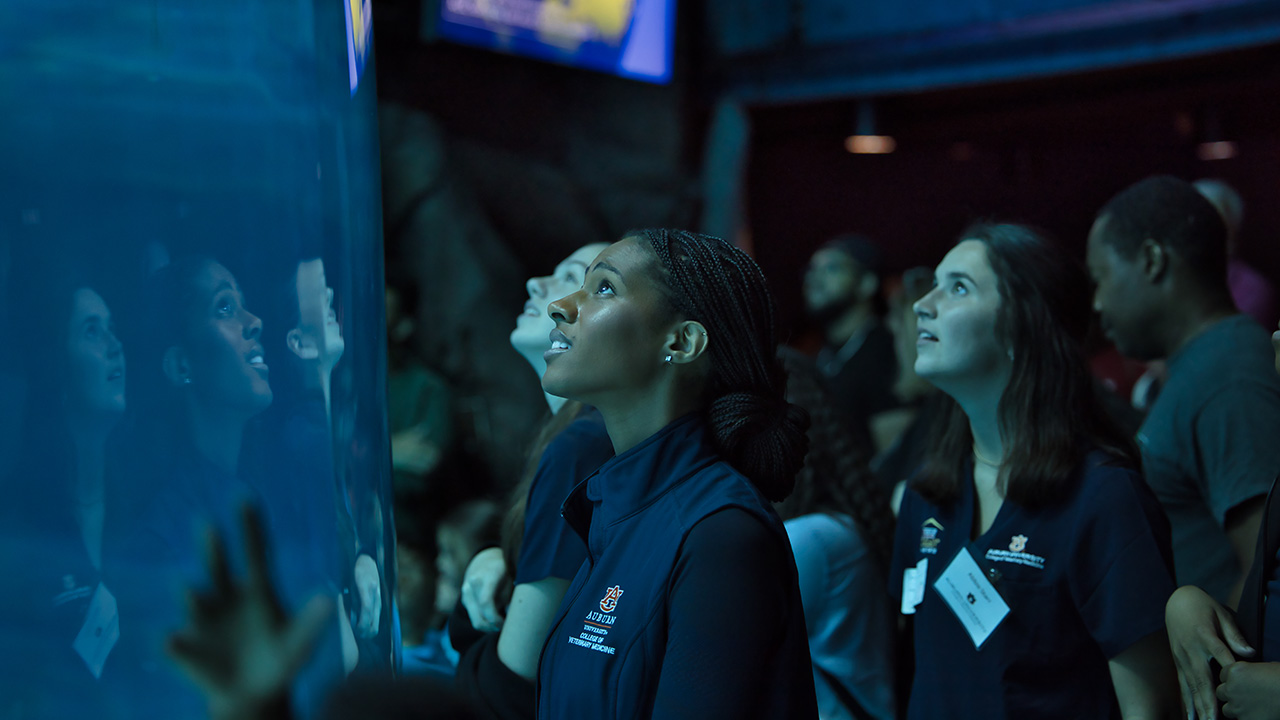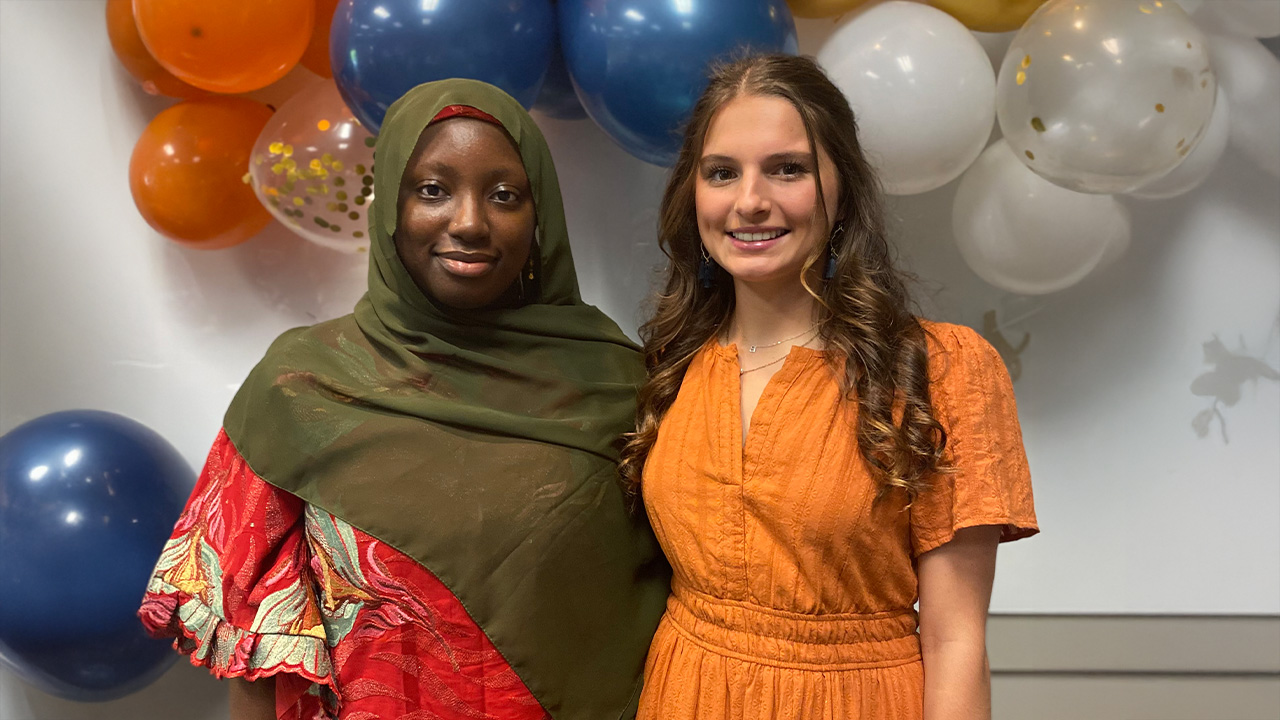content body
How do you pique undergraduate students’ curiosity — and hopefully ease any apprehension — about pursuing the field of veterinary medicine? You immerse them in opportunity.
That’s exactly what Auburn’s College of Veterinary Medicine (CVM) sets out to do with its annual, week-long Summer VIP, Veterinary Intensive Program.
From observing a sting ray’s ultrasound to learning suture techniques to fielding pharmaceutical support calls, nine lucky undergraduate students recently dipped their toes into the multifaceted world of veterinary medicine.

The Summer VIP program prepares prospective veterinary students for the school application process and exposes them to many aspects of the veterinary profession.
Yet the beauty of the program is not just how it benefits undergraduate students. The CVM students who participate as counselors, like Courtney Dunning and Jennifer Overman, also flourish.
Dunning and Overman, both rising Doctor of Veterinary Medicine (DVM) third-year students, were this year’s counselors and will be co-coordinators for the 2026 program.
Myriads of opportunities
The fourth annual Summer VIP, held this past May, is a student-derived and student-led program that prepares prospective veterinary students for the school application process and exposes them to many aspects of the veterinary profession.
CVM Professor and Associate Dean for Academic Affairs Melinda Camus describes Summer VIP as one of her passion projects.
“We offer the program to prepare and inspire the next generation of veterinarians,” Camus said. “By exposing participants to myriads of opportunities — from industry to academia to clinical practice — we highlight the value of a veterinary career and help college students see their place in the profession.”
This immersive learning experience creates a collaborative community amongst participants and engages them in experiential learning, both on-campus at Bailey Small Animal and J.T. Vaughan Large Animal Teaching Hospitals and off-campus at the Georgia Aquarium in Atlanta, Critter Fixer Veterinary Clinic in Bonaire, Georgia, and Boehringer Ingelheim in Duluth, Georgia.
Summer VIP also prepares students for the sometimes daunting task of applying to vet school, whether at Auburn or another school.
From horses to penguins to cats
One Summer VIP highlight for Dunning, who participated in the inaugural VIP as an undergraduate, was the cohort’s exposure to many different animals and veterinary settings, like the equine and bovine labs.
Of course, the behind-the-scenes visit of the Georgia Aquarium was a big hit: students participated in a penguin’s exam, a potentially pregnant sting ray’s ultrasound and training of Beluga whales.
At the Critter Fixers Veterinary Clinic, students learned the ins and outs of suturing, practiced in an endoscopy lab and shadowed a technician working on small animal patients.
A visit to pharmaceutical company Boehringer Ingelheim introduced students to another aspect of veterinary medicine that is not as visible.
“Here, students listened to recorded phone calls between veterinarians and clients reporting adverse reactions to certain products, followed by a session on how these incident reports were made,” Dunning said.
Simplifying processes, making connections
While VIP participation does not guarantee admission to CVM, an important program aspect is the feedback students received from Jan Miles, director of DVM professional program admissions. Miles led mock interviews and advised students on their strengths and weaknesses.
“The Veterinary Medical College Application Service is multilayered. At Summer VIP, students receive guidance and gain direction, which will simplify their overall process, no matter where they apply,” Overman said.
Networking is another big highlight.
“The community dinners are truly beneficial,” Dunning said. “The prospects meet and ask questions of people like Dr. Camus and CVM Dean [Calvin] Johnson.”
Overman sees Summer VIP as an experience that bolsters students’ confidence in their efforts to become veterinarians, partially due to the mentorship and new friendships.
“Being a veterinarian is a collaborative career relying heavily on a strong community,” Overman said. “These students gain the advantage of developing a community of peers before applying to a school.”
CVM students mentor, lead
Summer VIP also advances the skillsets of the CVM students participating in the program.
With the intent of pursuing her residency in lab animal medicine, Dunning not only appreciated her exposure to many different animal types but also the boost she felt from realizing her own role as a resource.
Overman saw her benefits as largely interpersonal because of the connections and friendships she formed with the prospective students.
“I am in touch with many students from last year, and some participating in the recent cohort have already contacted me,” she said.
Camus, too, sees the value of the program for CVM students.
“By utilizing our current students as counselors, we give them the opportunity to mentor and lead, which are important professional competencies,” she said.








